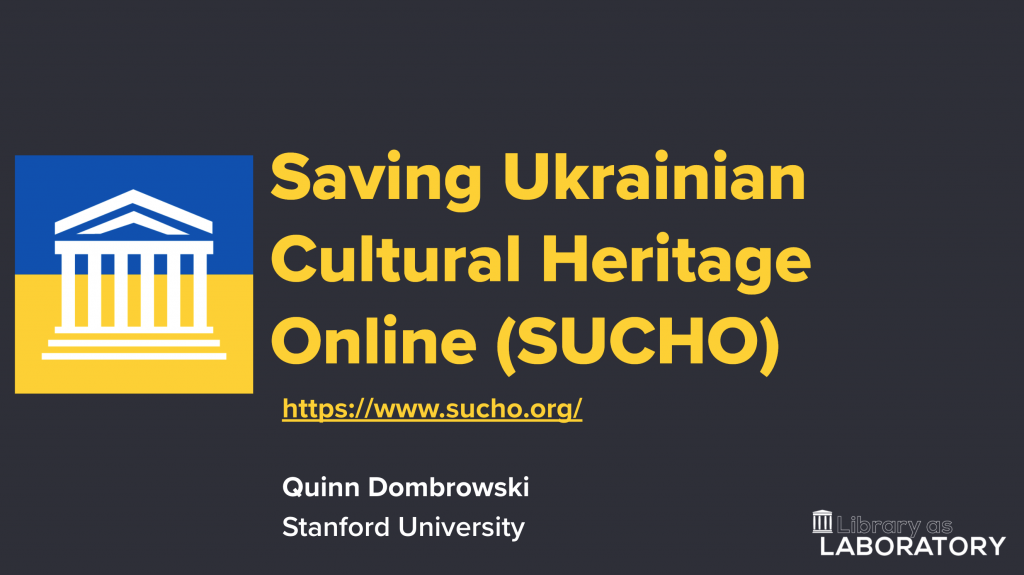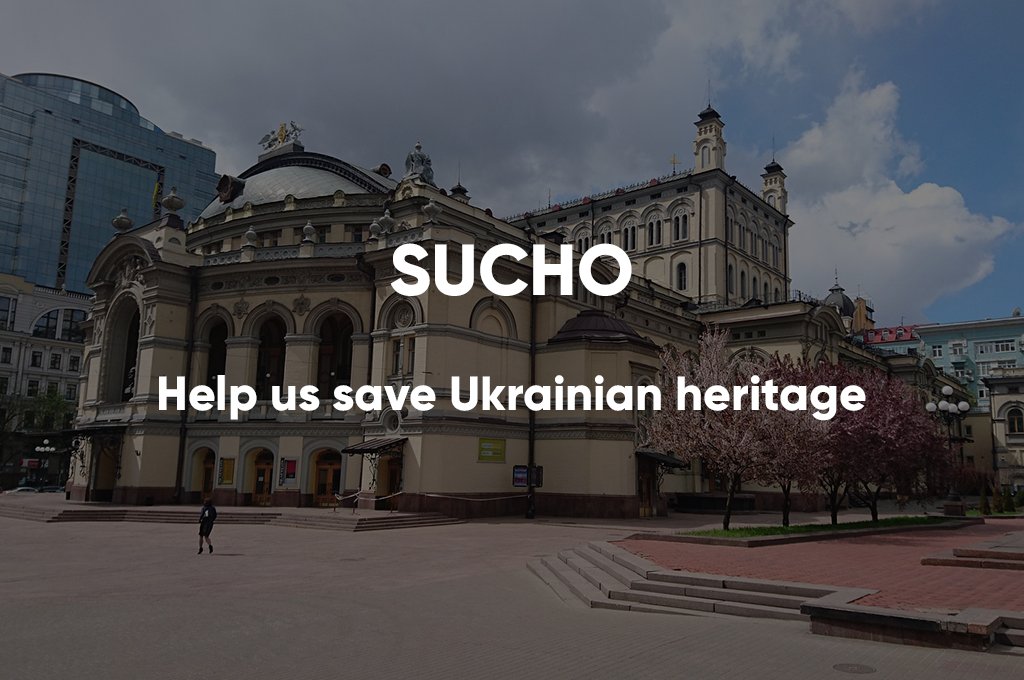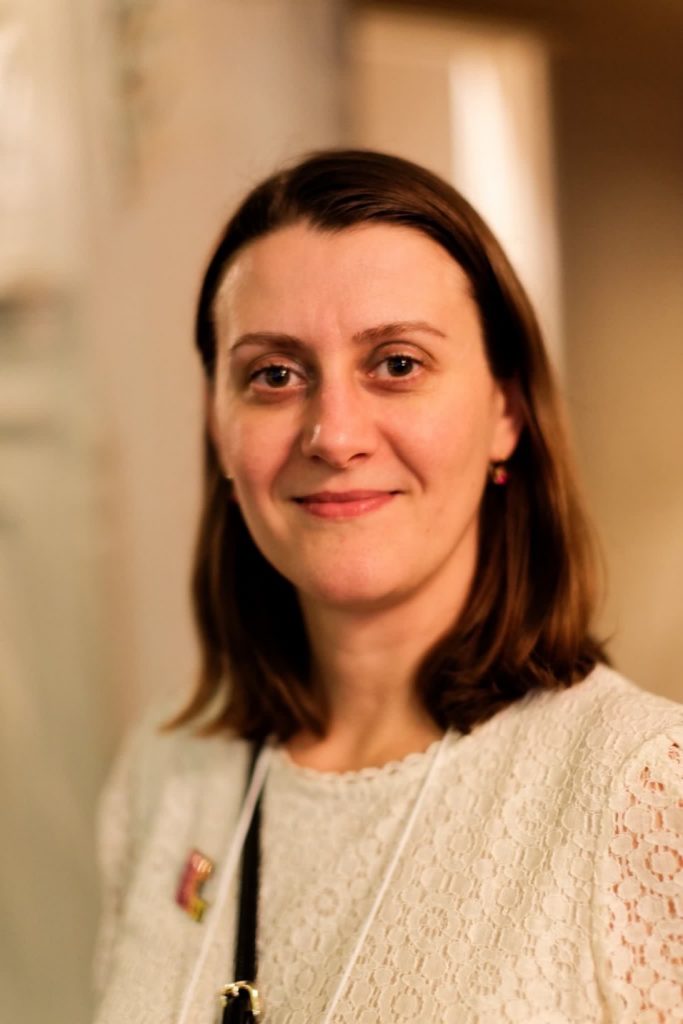Volunteers Rally to Archive Ukrainian Web Sites
As the war intensifies in Ukraine, volunteers from around the world are working to archive digital content at risk of destruction or manipulation. The Internet Archive is supporting several preservation efforts including the Saving Ukrainian Cultural Heritage Online (SUCHO) initiative launched in early March.

“When we think about the internet, we think the data is always going to be there. But all this data exists on physical servers and they can get destroyed just like buildings and monuments,” said Quinn Dombrowski, academic technology specialist at Stanford University and co-founder of SUCHO. “A tremendous amount of effort and energy has gone into the development of these websites and digitized collections. The people of Ukraine put them together for a reason. They wanted to share their history, culture, language and literature with the world.”
Watch:
More than 1,200 volunteers with SUCHO have saved 10 terabytes of data including 14,000 uploaded items (images and PDFs) and captured parts of 2,300 websites so far. This includes material from Ukrainian museums, library websites, digital exhibits, open access publications and elsewhere.
The initiative is using a combination of technologies to crawl and archive sites and content. Some of the information is stored at the Internet Archive, where it can be discovered and accessed using open-source software.
Staff at the Internet Archive are committed to assisting with the effort, which aligns with the organization’s mission of universal access to knowledge, and aim to make the web more useful and reliable, said Mark Graham, director of the Wayback Machine.
“This is a pivotal time in history,” he said. “We’re seeing major powers engaged in a war and it’s happening in the internet age where the platforms for information sharing and access we have built, and rely on, the Internet and the Web, are at risk.”
The Internet Archive is documenting and making information accessible that might not otherwise be available, Graham said. For years, the Wayback Machine has been archiving about 950 Russian news sites and 350 Ukrainian news sites. Stories that are deleted or altered are being archived for the historical record.
“We’re seeing major powers engaged in a war and it’s happening in the internet age where the platforms for information sharing and access…are at risk.”
Mark Graham, director, Wayback Machine
Recognizing the urgency of this moment, Dombrowski has been stunned by the response to help from archivists, scholars, librarians involved in cultural heritage and the general public. Volunteers need not have technical expertise or special language skills to be of value in the project.
“Many people were spending the days before they got involved with SUCHO scrolling the news and feeling helpless and wishing they could do something to contribute more directly towards helping out with the situation,” Dombrowski said. “It’s been really inspiring hearing the stories that people have told about what it’s meant to them to be able to be part of something like this.”

Gudrun Wirtz, head of the East European Department of the Bavarian State Library (Bayerische Staatsbibliothek) in Munich, was archiving on a smaller scale when she and other colleagues began to collaborate with SUCHO.
“We are committed to Ukraine’s heritage and horrified by this war against the people and their rich culture and the distorting of history going on,” Wirtz said. “As Germans we are especially shocked and reminded of our historical responsibility, because last time Ukraine was invaded it was 1941 by Nazi-Germany. We try to do everything we can at the moment.”
The invasion of Ukraine hits particularly close to home for Anna Kijas, a librarian at Tufts University and co-founder of SUCHO, who is a Polish immigrant with family members who lived through Soviet occupation following WWII.
“Contributing to the SUCHO effort is something tangible that I can do and bring my expertise as a librarian and digital humanist in order to help preserve as much of the cultural heritage of the Ukrainian people as is possible,” said Kijas.
The third co-founder SUCHO, Sebastian Majstorovic, is with the Austrian Centre for Digital Humanities and Cultural Heritage.
The Internet Archive is providing technical support, tools and training to assist volunteers, including those with SUCHO, who are giving of their time.
Through Archive-It, a customizable self-service web archiving platform that captures, stores, and provides access to web-based content, free online accounts have been offered to volunteer archivists. Mirage Berry, business development manager for Archive-It, has coordinated support with other preservation partners including the Harvard Ukrainian Research Institute, the Center for Urban History of East Central Europe, and East European & Central Asian Studies Collections librarian Liladhar Pendse at University of California, Berkeley.
“It’s so incredible how quickly all of these archivists have pulled together to do this,” Berry said. “Everyone wants to do something. You don’t need to have a ton of technical experience. For anyone who is willing to learn, it’s a great jumping off point for web archiving.”
SUCHO organizers anticipate after the immediate emergency of website archiving is over, there will be an ongoing need to stay vigilant with data curation of Ukrainian material. To learn more and get involved, visit http://www.sucho.org.

No comments:
Post a Comment